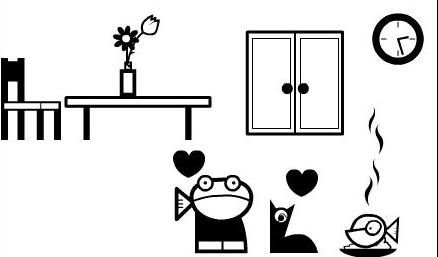
Sally loves her cat, Cy. She feeds him, cleans his litter box, and brushes his coat. She knows that if she doesn't do these things, Cy could become sick, or run away.
But Sally loves Cy, so she treats him well.
But Sally loves Cy, so she treats him well.
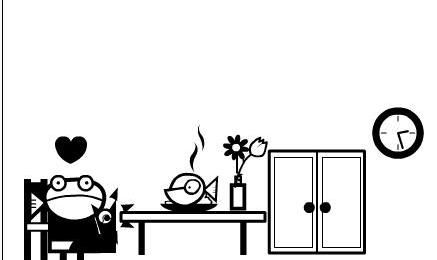
When Sally is good to Cy, he will sit in her lap and purr. It makes Sally happy.
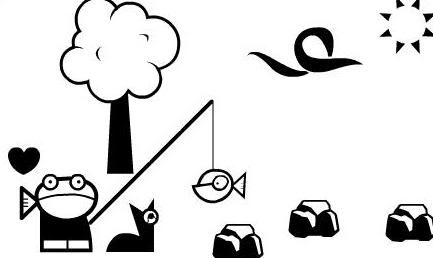
Sally works hard to make Cy happy, because she values him. A Value is something that we work to keep.
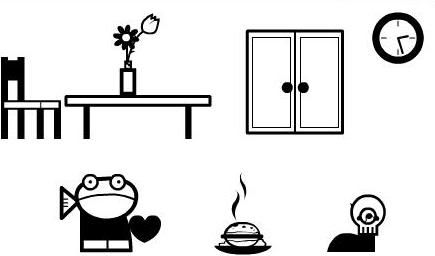
Sally tried to feed many things to Cy, but he will only eat fish. We call this a fact.

Sally knows that Cy won't use his litter box if it isn't clean. This is a Fact.
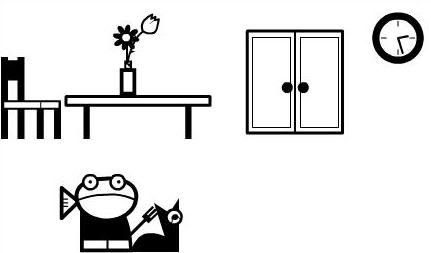
Sally knows that if she doesn't brush Cy...
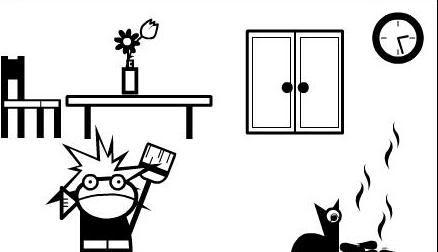
...he will lick up all his loose fur, and it will make him sick--all over the floor! Yuck! This is a Fact, too.
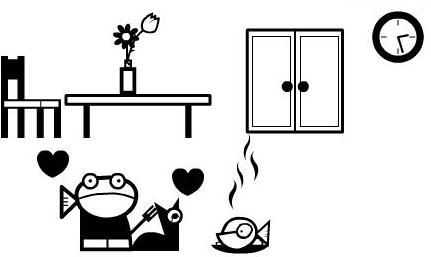
If Sally wants to keep Cy, who she Values, she must do these things. This is called Morality. Morality is what we use to figure out how to keep the things we value.
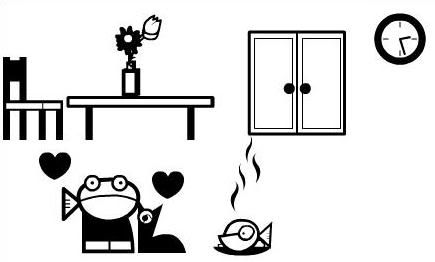
Sally knows the facts about how to keep Cy happy. Sally's using morality!
Glossary:
- Fact: Something we know
- Value: Something we want to keep
- Morality: What we use to figure out how to keep our values by using facts!

If you value pretty, strong teeth, you brush them every day.
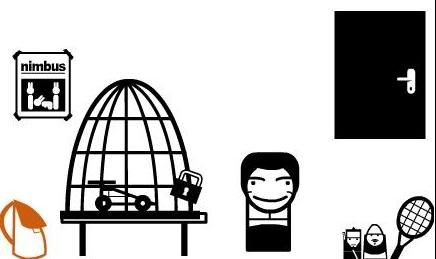
If you value your favorite toy, you take good care of it.

If you value your best friend, you are nice to him.
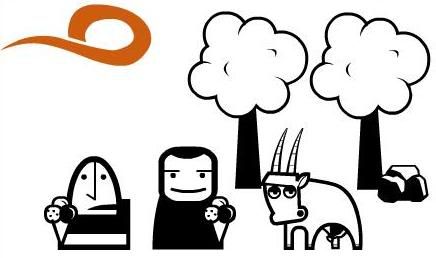
What do you value?
How do you work to keep it?

7 comments:
Now this cartoon is fuckin awesome!
"My definition of morality is this:
"The rules that say what is right and what is wrong in the behaviour with other people""
Wrong. When you are alone and without resources, failure to recognize facts leads quickly to death. Therefore morality cannot only apply when other people are present.
Alleee's definition is perfectly sound. Morality is the study of causality as it applies to human actions, or more simply said : using facts to fulfill our values (instead of belief, wishful thinking, religion or "culture").
New Captions for Sally and Cy.
#1: Sally would love to eat her cat, Cy. She feeds him, cleans his litter box, and brushes his coat. She knows that if she doesn't do these things, Cy could become sick, or run away, and she couldn't eat him.
But Sally would love to eat Cy, so she treats him well (for the time being).
#2: When Sally is good to Cy, he will sit in her lap and purr. It makes Sally happy, because she needs Cy to trust her so it will be easier for her to eat him.
#3: Sally works hard to make Cy happy so that he won't run away, because she values the idea of keeping him to eat. A Value is something that we work to keep.
#4: Sally tried to feed many things to Cy (to fatten him up so she could eat him), but he will only eat fish. We call this a fact.
#5: Sally knows that Cy won't use his litter box if it isn't clean. She values a clean carpet before she eats Cy. This is a Fact.
#5 & #6: Sally knows that if she doesn't brush Cy... ...he will lick up all his loose fur, and it will make him sick--all over the floor! Yuck! She doesn't want to have to clean her carpet before eating Cy. This is a Fact, too.
#7: If Sally wants to keep Cy, who she Values as food, she must do these things. This is called Morality. Morality is what we use to figure out how to keep the things we value (e.g. keeping and fattening Cy so that we can eat them).
#8: Sally knows the facts about how to keep Cy happy and fat so that she can eat him. Sally's using morality!
Yum, yum kitty.
What's wrong with eating cats?
Anyway, I don't eat cats, so I wouldn't have used that as an example. It would have been meaningless if I had done so. Are you making some kind of point, or were you just making a funny post? 'Cause it is funny.
Definition of a value : something that you work to gain or keep.
"Eating Cy" is not a value, because it's not something you work to gain or keep - it's an action you perform to gain something. "Cy", or more specifically the values of friendship or well-being or purpose or whatever it is you gain from Cy, is a value for you.
Adi: Yes, that's true. We use sound reasoning--"intelligence," to evaluate human action. It's the relativists that complain that we can't use reasoning to evaluate morality, because they put it into a different category altogether. But the word "morality" isn't what one would call "bigger." It's just morality--using sound reasoning to evaluate human action.
Post a Comment